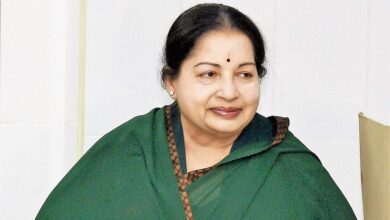In a dramatic and highly charged Oval Office meeting, former President Donald Trump delivered a scathing critique of Ukrainian President Volodymyr Zelenskyy, accusing him of “gambling with World War III.” This incendiary remark, made during a high-profile discussion, has set off a storm of reactions both in the United States and internationally. The meeting, marked by its intense rhetoric and stark warnings, has further fueled debates about U.S. foreign policy, global security, and the future of U.S.-Ukraine relations.
The Oval Office Encounter: Setting the Stage for a Fiery Debate
The meeting, held at the historic Oval Office, became the backdrop for one of the most memorable exchanges in recent political discourse. During the session, Donald Trump expressed his deep concerns about the ongoing geopolitical strategies pursued by Volodymyr Zelenskyy and his administration. According to sources close to the former President, Trump’s remarks were both personal and pointed, reflecting his longstanding skepticism towards Zelenskyy’s leadership and his handling of the conflict with Russia.
- Accusation of Recklessness: Trump’s statement that Zelenskyy is “gambling with World War III” was intended to underscore what he perceives as the dangerous risks associated with current Ukrainian policies. He argued that the decisions made by Zelenskyy could inadvertently escalate regional conflicts, potentially triggering a global crisis.
- Rhetorical Intensity: The fiery language used by Trump was a departure from more measured diplomatic discourse. His blunt critique has resonated with some supporters who share his concerns over global security, while critics argue that such rhetoric only deepens international divisions.
- Context of the Meeting: The discussion took place amidst heightened global tensions, with ongoing conflicts and shifting alliances adding urgency to the debate. The Oval Office meeting provided a critical platform for Trump to voice his opinions and influence public discourse on these pressing issues.
Political and Global Reactions
The explosive comments from Donald Trump have not gone unnoticed. Political figures, analysts, and international leaders have weighed in on the matter, creating a multifaceted debate over the implications of his words.
- Domestic Response: In the United States, Trump’s remarks have divided opinion. Supporters applaud his forthright approach, arguing that he is drawing necessary attention to the potential dangers of unchecked foreign policy decisions. Conversely, critics warn that such language could undermine diplomatic efforts and contribute to a more volatile international environment.
- International Concerns: Global leaders have also reacted to the “gambling with World War III” comment with a mix of alarm and skepticism. Some worry that the provocative rhetoric could destabilize already fragile regional alliances and exacerbate tensions with Russia, while others see it as a reflection of the polarized nature of current international politics.
- Media and Social Media Buzz: The statement quickly went viral on social media platforms, with hashtags like #Trump, #Zelenskyy, #WorldWarIII, and #OvalOffice trending worldwide. The widespread online discussion highlights the deep divisions and strong emotions stirred by Trump’s remarks.
Implications for U.S.-Ukraine Relations and Global Security
Trump’s harsh critique of Volodymyr Zelenskyy is more than a mere exchange of words—it carries significant implications for international relations and global security dynamics.
- Impact on U.S.-Ukraine Relations: The remarks may strain the already complex relationship between the United States and Ukraine. While some see Trump’s criticisms as a call for greater caution, others fear that such public denouncements could weaken diplomatic ties at a time when strong alliances are crucial.
- Risk of Escalation: By framing Ukrainian policy as a dangerous gamble with global consequences, Trump has amplified fears of an accidental escalation into broader conflict. This rhetoric could potentially embolden adversaries or create misunderstandings that lead to unintended military confrontations.
- Call for Diplomatic Restraint: Many experts stress the need for careful, measured diplomatic language, especially when addressing sensitive issues like international conflict and security. The fiery tone of Trump’s comments underscores the challenge of balancing robust criticism with the imperative to maintain global stability.
Expert Analysis and Future Outlook
Political analysts have noted that Trump’s comments, while controversial, highlight the intense debate surrounding current U.S. foreign policy. Some analysts argue that his blunt language serves as a wake-up call, urging policymakers to reevaluate the risks associated with current strategies in Ukraine. Others caution that such statements may lead to further polarization and detract from the essential work of diplomatic engagement.
Looking ahead, the dialogue sparked by this Oval Office meeting is likely to influence ongoing discussions about international security, U.S.-Ukraine relations, and the broader geopolitical landscape. As global tensions continue to simmer, the need for clear, constructive, and cautious diplomatic communication becomes ever more critical.
Conclusion: Navigating a Precarious Path Forward
The fiery Oval Office exchange in which Donald Trump accused Volodymyr Zelenskyy of “gambling with World War III” represents a pivotal moment in contemporary political discourse. As the world grapples with complex security challenges and shifting alliances, it is essential for leaders to balance bold statements with the responsibility of maintaining international peace. The reverberations of this controversial remark will undoubtedly continue to influence debates on global security and diplomacy in the months and years to come.









